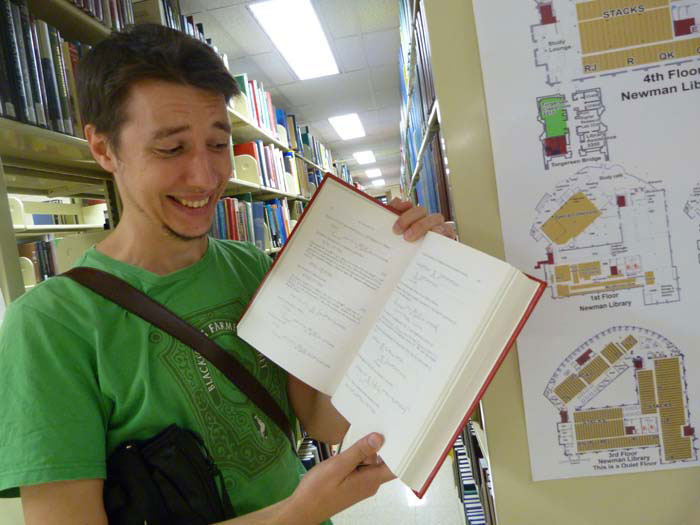Jen Stevens is the Humanities and Social Sciences Librarian at George Mason University and a consultant for Mason’s Writing Across the Curriculum Faculty Senate Committee. She has extensive experience assisting undergraduate and graduate student writers discover new resources and information in their research process. For her information and current InfoGuides, click here!
In my work as a Humanities and Social Sciences Librarian at George Mason University, I work with faculty members and their students to help the students learn how to do better research, which in turn leads to better writing.
Last week, I found the strangest thing in the Fenwick Library Reference area. . .



